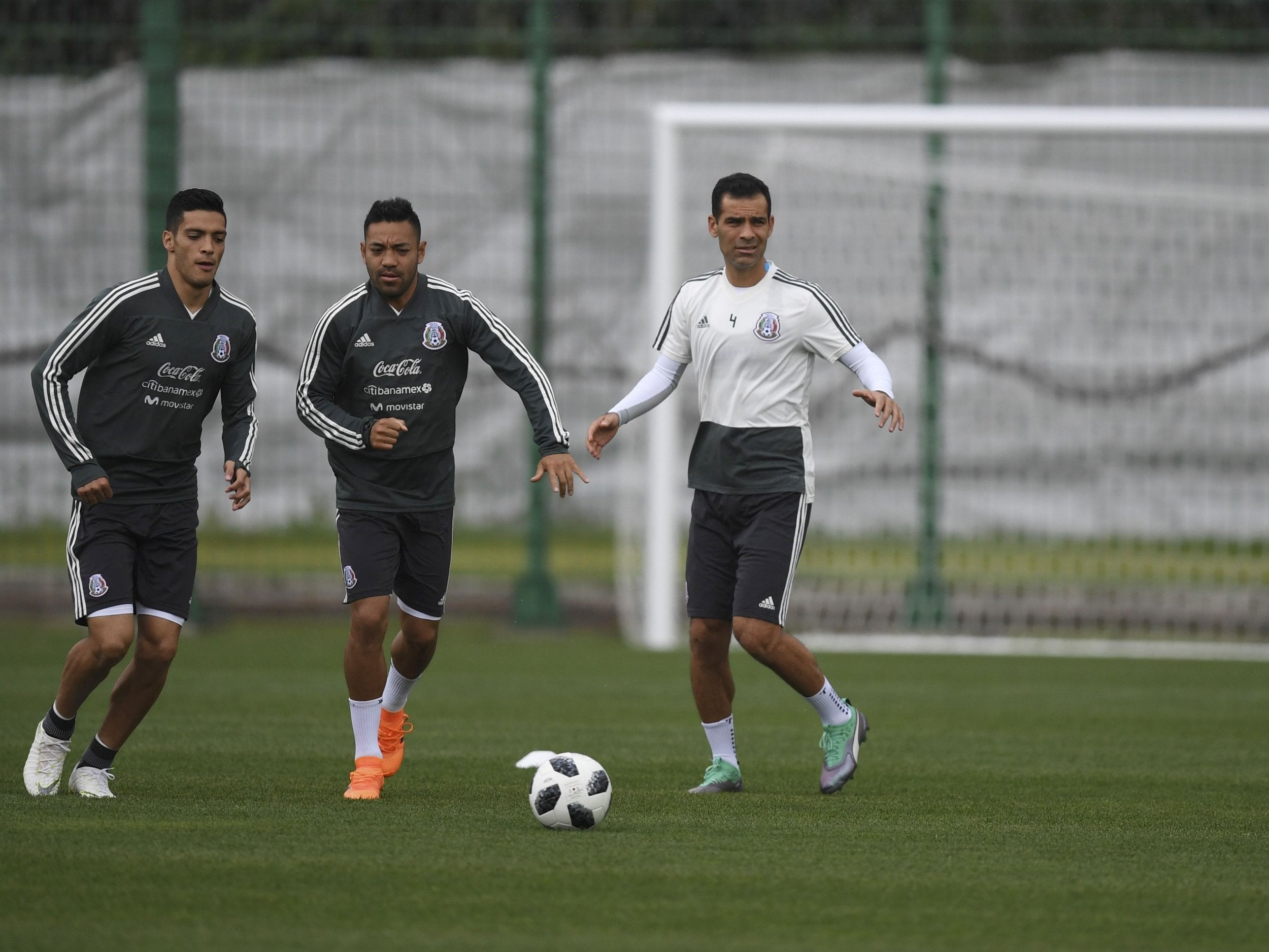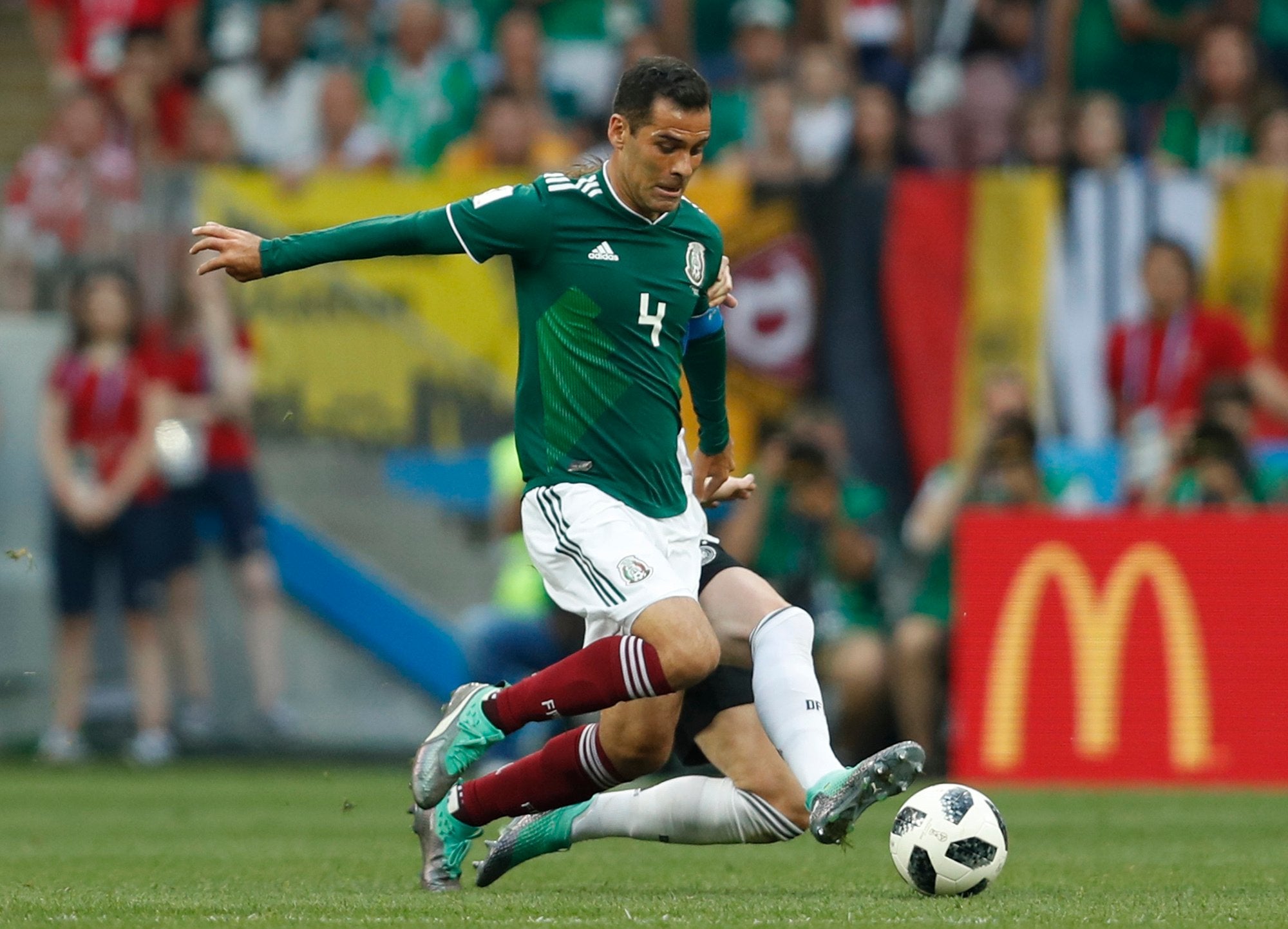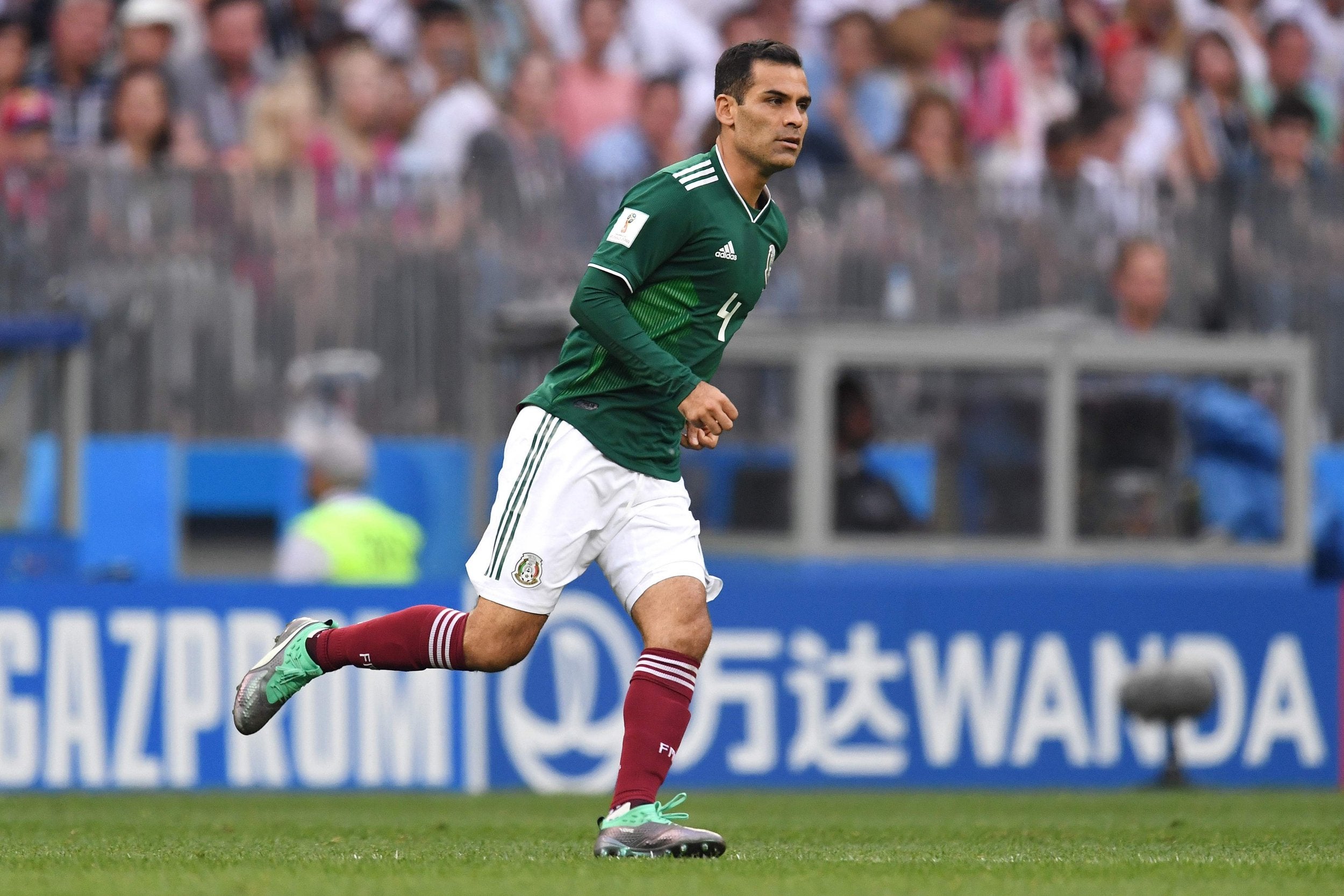Rafael Marquez: Five World Cups but Mexico’s captain is lost in the shadows far from the national hero he should be
The veteran captain made history in Mexico’s win over Germany but leaves a complicated legacy after fighting to clear his name over allegations of his links with drug cartels

Your support helps us to tell the story
From reproductive rights to climate change to Big Tech, The Independent is on the ground when the story is developing. Whether it's investigating the financials of Elon Musk's pro-Trump PAC or producing our latest documentary, 'The A Word', which shines a light on the American women fighting for reproductive rights, we know how important it is to parse out the facts from the messaging.
At such a critical moment in US history, we need reporters on the ground. Your donation allows us to keep sending journalists to speak to both sides of the story.
The Independent is trusted by Americans across the entire political spectrum. And unlike many other quality news outlets, we choose not to lock Americans out of our reporting and analysis with paywalls. We believe quality journalism should be available to everyone, paid for by those who can afford it.
Your support makes all the difference.Rafael Marquez has to be careful.
In the bowels of the Luzhniki Stadium in Moscow, the Mexican veteran is happy to speak to The Independent, as you might expect for a player who that afternoon had ascended to the Mount Olympus of World Cup footballers.
It was only a brief cameo, fleeting minutes where his coach, Juan Carlos Osorio, had needed an old head to calm his team that had – to that point – managed to stun world champions Germany with a strategy of barely organised attacking chaos. The clock was ticking down and so Marquez was summoned by the boss, and as soon as he entered the field he became only the third footballer to play in five World Cups, joining German legend Lothar Matthaus and his own countryman, Antonio Carbajal.
But as the final whistle blows and Marquez’s team-mates celebrate, he must remember the rules. His own water bottle is passed to him while colleagues drink indiscriminately and squirt wildly from those given to them. Marquez strolls towards broadcast backdrops bedecked with the names of Fifa World Cup sponsors – Budweiser, Visa, McDonalds – and after achieving such a feat in a momentous result for Mexico he will surely be interviewed by television crews, you would think. But he carries on walking.
This is how it must be for Rafael Marquez, named on a United States Treasury Department blacklist of people that it says have helped drug cartels, the scourge of Mexico, to launder their money. He is accused of links with suspected trafficker Raul Flores Hernandez, an infamous ‘narco’ with links to the Sinaloa and Jalisco cartels. Officially, Marquez is being sanctioned under the Foreign Narcotics Kingpin Designation Act, which is every bit as scary and life-altering as it sounds.
Simply being on the blacklist is a hugely limiting experience for a man desperately trying to clear his name. Marquez, for all his profile and success back home, now walks a daily tightrope that, with assistance from the Mexican Football Federation (FMF), is designed to keep him from violating the strict guidelines in place.
Marquez has not been criminally charged with anything but his assets in the US, where he played for the New York Red Bulls between 2010 and 2012, have been frozen. These include a soccer school and a charitable foundation.
The 39 year-old is prohibited from having anything to do with American individuals, banks or businesses, the latter becoming a significant issue at a sponsor-laden event like the World Cup.
The FMF have gone above and beyond to attempt to keep Marquez out of contact with anything that could even be perceived as American, a difficult task when the marketing arm of Mexican football’s governing body is a joint-venture with the US Soccer Federation, Soccer United Marketing.
It is why Marquez wears different training apparel to his teammates, drinks from different water bottles and, sometimes, stays in different hotels, according to a non-exhaustive list published in the New York Times.
Marquez’s lawyers are cooperating with American authorities to try and get their client removed from the list but in the mean time his World Cup participation had been in doubt, with the veteran unavailable for selection for his club side, Atlas, while lawyers worked out what he could and could not do. At 39 he is already limited to a cameo role, but even if he dazzled in the limited time available to him, it is nigh-on certain that Fifa would know better than to give him the Budweiser Man of the Match award, given the issues it would create.
Only at the last minute was Marquez finally added to Mexico’s World Cup squad before the deadline in early May, and he still had to miss the pre-tournament friendly against Wales in California for obvious reasons.

So as he emerges from the changing rooms after a famous Mexico win, having created his own little piece of history, few of the questions are about him. Reporters from his homeland bombard him with queries about coach Osorio, the much-maligned professor who had just masterminded an unthinkable upset over the weltmeister Germans.
“How big a result is this for Mexico?”
“How did you do it?”
“How does it feel to beat the best team in the world?”
Little, if anything, about the 39-year-old’s contribution on the day or to Mexican football, of which he has been a stalwart for now nearly two decades.
Perhaps understandably given his current situation, Marquez speaks largely in platitudes. Keen not to offend, desperate not to attract too much attention.
“We have been training for this for weeks… it is great for the team… for us the coach is our leader and we trust him.”
It is a complicated legacy for Marquez, a day on which he might have been the big story he is reduced to a soundboard for praise about others. There are few questions about his fifth World Cup, a sense of awkwardness perhaps at his very presence in Russia, considering the circumstances, but his achievement of 19 major international tournaments despite it being a decade past his prime is the sort of thing you only usually hear about in golf. For modern football it is nigh-on unthinkable.
The former Barcelona man won four league titles and two Champions Leagues at the Nou Camp but that was almost a different era of football from now. It was before Pep Guardiola hauled the game out of its defensive shell and spawned a generation of attack-minded coaches for whom pressing and counter-pressing were the norm.

And speaking to The Independent, impeccably dressed in a black suit but somewhat taken aback at being asked about himself and his own experiences, the 39-year-old Marquez admits football has come on significantly when asked how things have changed since he first played in a World Cup back in Japan and South Korea.
“Oh football has changed a lot since 2002,” he says, thinking. “It has evolved, with much faster players, players with better technique. But they are also players who think faster now and they are so much more athletic. It’s totally different.”
Mexico have enjoyed mitigated success in World Cups. On one hand, only they and Brazil can proudly claim to have qualified for every knockout stage in the last six World Cups. On the other, Mexico have been eliminated at the round-of-16 stage in each of those six. Progress, but not much. Hope, but only in doses small enough to be immediately dissolved.
So while there have been plenty of World Cups for Marquez and some great moments, most notably the win over France at South Africa 2010, this victory over the reigning world champions in Moscow probably trumps them all. It is just a shame that for Marquez it comes under a personal cloud.
“There have been so many good memories,” he ponders, but there is a tiredness. Racking his brains to find the best one does not seem high on Marquez’s list of priorities. “I kind of think it’s time to just enjoy this result for now,” he concludes. “We have just beaten one of the strongest teams I have played against. The world champions.
“At the end of the day I’m just happy with the win.”

And off he went.
On Saturday, Mexico can seal progression from the group stage with victory and eminently beatable South Korea side in Rostov. Then they face Sweden in Ekaterinburg before, they hope, extending their stay in Russia.
Marquez will be along for the ride, the veteran presence his squad needs but also a man walking a tightrope – a record-breaking career ending with an uncomfortable, unprecedented World Cup experience.
Join our commenting forum
Join thought-provoking conversations, follow other Independent readers and see their replies
Comments